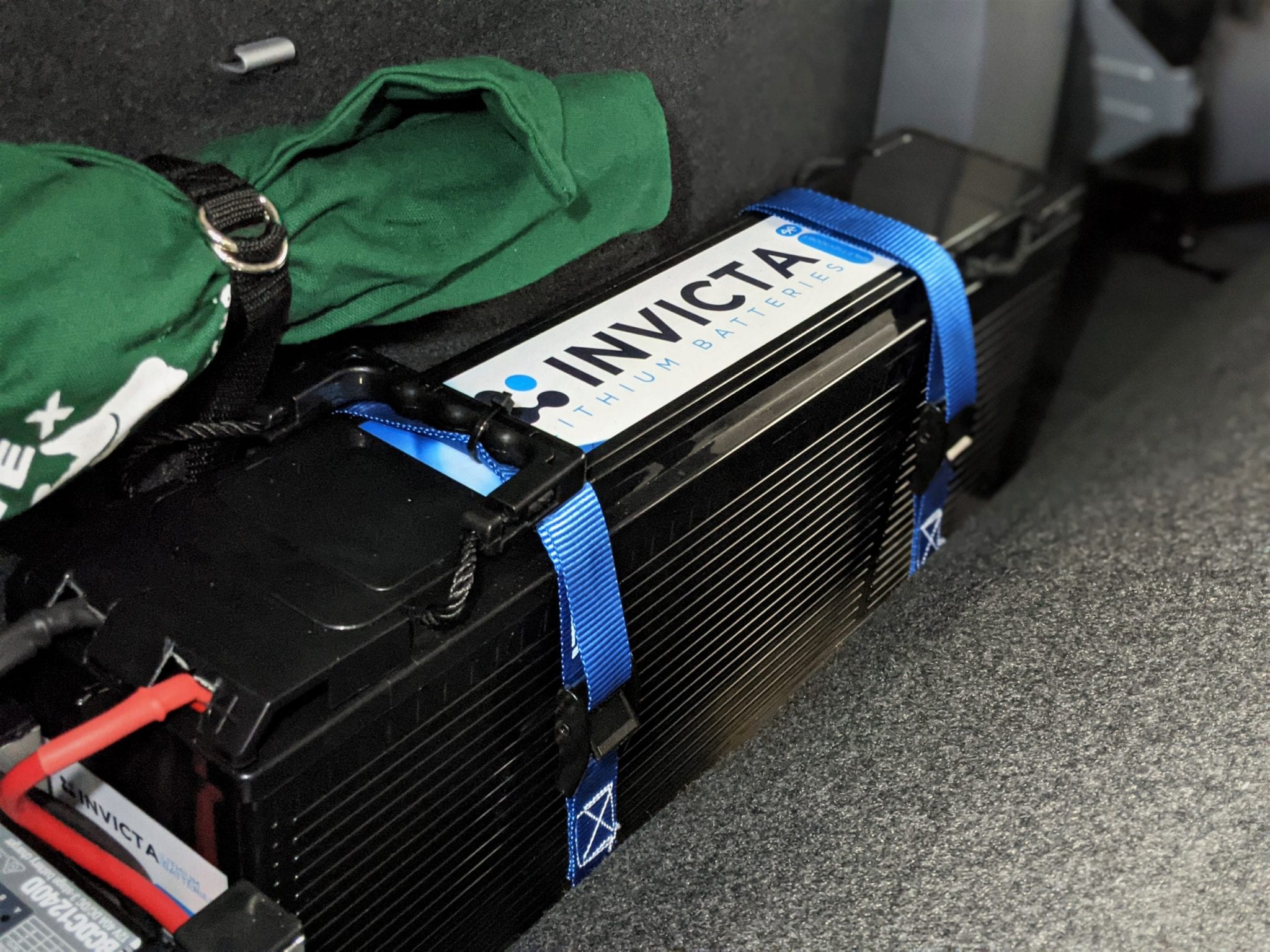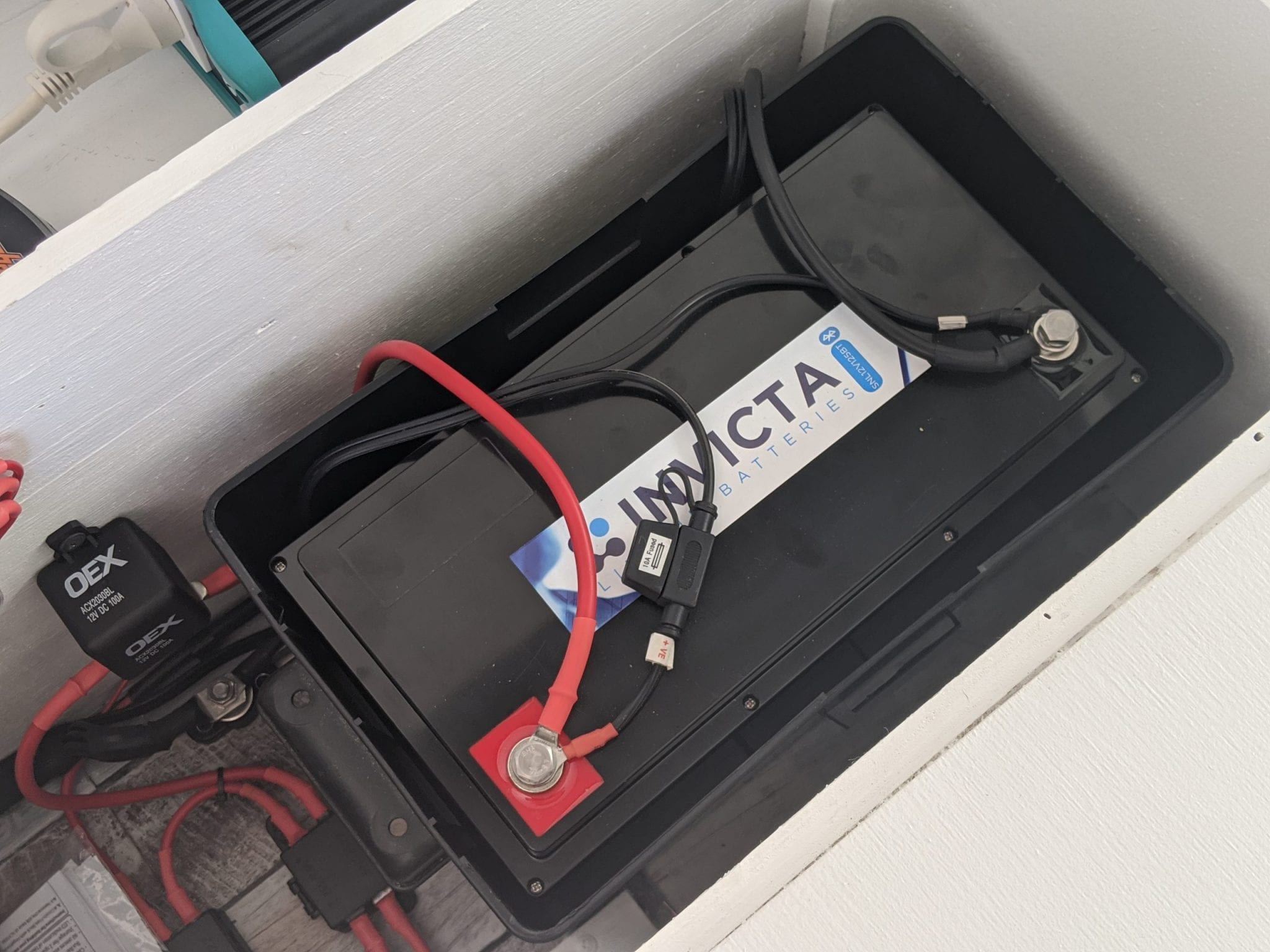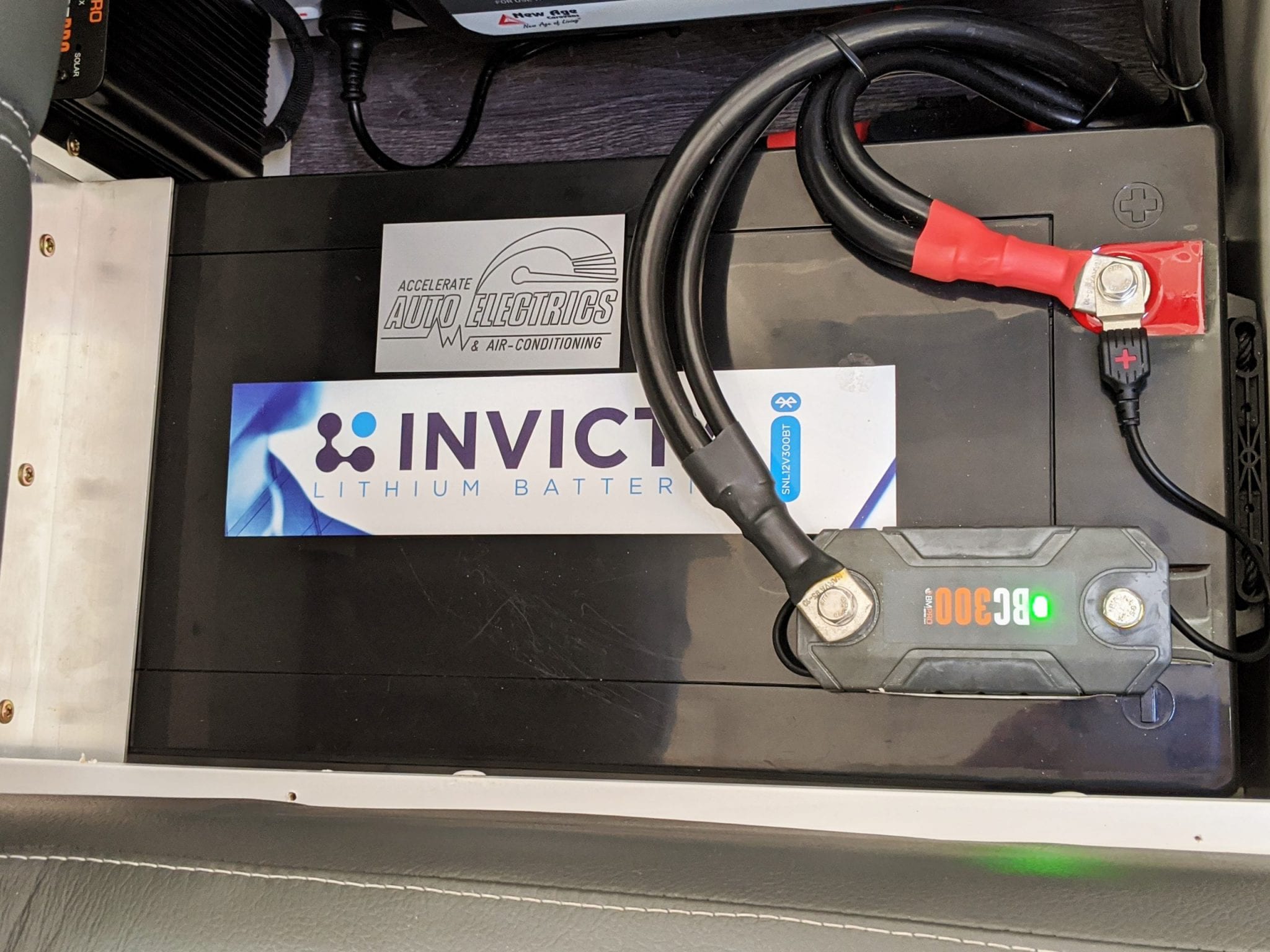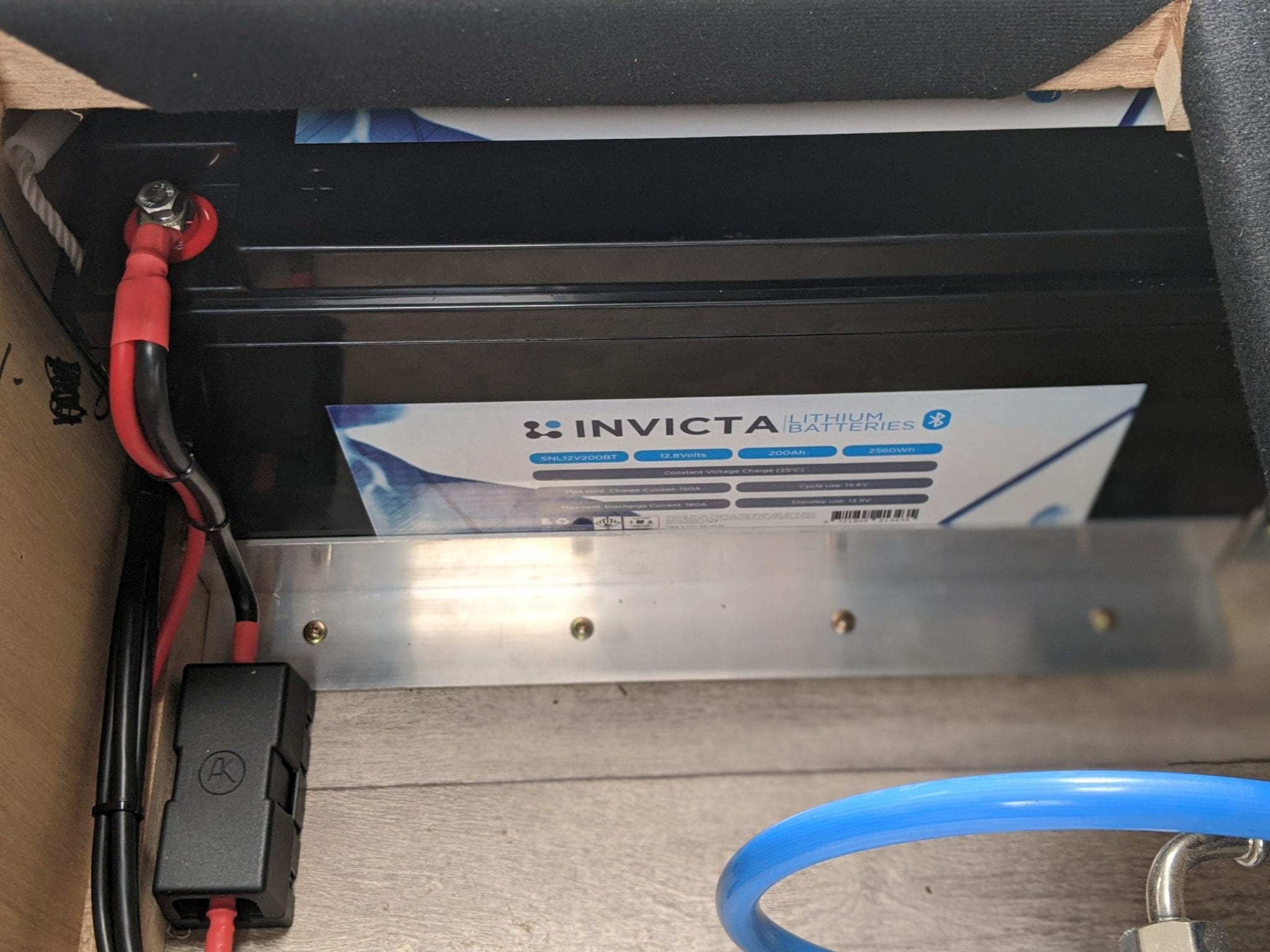With the increasing number of people getting their caravan’s set up for off-grid travel around Australia, we are seeing an influx in enquiries about Lithium Batteries. We thought we’d break down a couple of frequently asked questions around upgrading to Lithium and take a closer look in particular at one of our recommended brands, Invicta Lithium Batteries.
So let’s get a little technical to start with.
What is a Lithium Battery?
Similar to common lead acid batteries, lithium batteries consist of positive plates (cathodes) and negative plates (anodes), insulating separators between the positive and negative plates to avoid short circuits and electrolyte (conductive liquid). However, unlike flooded lead acid batteries, there is no free liquid in LiFePO4 batteries.
The main difference with lithium batteries is in the material that is used for the various components and what happens during the charge/discharge process. Unlike lead-acid batteries that undertake chemical reactions, Lithium just transfers ions during these processes, leaving everything else as is.
Different Types of Lithium Batteries
Lithium or Lithium Ion batteries refers to a classification of batteries in which ions move between the negative and positive electrodes during charge and discharge. It is important to note that there are a number of different technologies that fall under the ‘Lithium Ion’ umbrella, and they all use slightly different materials and exhibit different characteristics, making some more suitable than others in certain applications.
Out of the various types of Lithium Batteries, the safest and most reliable is the Lithium Iron Phosphate (LifePO4). This is due to the thermal and chemical stability of phosphate based technology, providing better safety characteristics than other Lithium Ion technologies. LifePO4 also has a much higher runaway temperature of 270 degrees celsius, compared to other types that can be as low as 150 degrees celsius. These batteries are also more stable in a range of charging/discharging conditions and are also more chemically robust than other Lithium Ion types.
How Are Lithium Batteries Tested?
One brand that is leading the way when it comes to safety testing with LifePO4 batteries is Invicta.
Invicta Lithium Batteries are one of the only products in the lithium market that have IEC Certification for both the BMS and Cell combination (IEC62619). Not only does this mean that their batteries are subject to the standard testing that most other manufacturers undertake, but they take it one step further to ensure their products are safe for use in a wider range of applications. Some of the safety aspects tested under this IEC Certification include:
- Assembly of cells into packs
- Short circuit propagation (between cells)
- BMS protection against over charge – Voltage and Current
- Over temperature
- Short circuit
- Impact
- Thermal abuse
- Annual factory audit – to ensure consistency.
Invicta batteries also feature a built in Battery Monitoring System (BMS) to further protect the battery as well as managing internal cell balancing which is critical for the safety of the battery.
Where can Lithium Batteries be installed?
During the testing processes, these batteries also undergo impact, drop and vibration testing to ensure there is no risk of the battery leaking, rupturing, venting or igniting. This means that most lithium batteries can be installed in the same location as your traditional deep cycle battery, with the only exception being under bonnet applications.
Thankfully, brands such as Invicta also offer a wide range of battery sizes, including slimline options, which allows for a lot of versatility when it comes to fitment locations.




So, Why Upgrade to Lithium?
Save Weight
There are a few reasons why Lithium is quickly becoming the go-to choice for deep cycle applications but one of the most common reasons is the weight. Due to the high energy density of LifePO4 batteries, switching to lithium can greatly reduce the overall weight of your battery system. To compare, the average SLA 100Ah battery can weigh approx 27kgs, whereas a 100Ah LifePO4 battery only weighs approx. 12kgs. In applications where weight is of great importance, just as caravans or trailers, Lithium is by far the superior choice.
Lower Cost of Ownership
Sure, there’s no hiding that the initial cost of lithium batteries is significantly higher than their SLA counterparts, however, when calculating the lifetime cost of switching to lithium things shift in their favour. Lithium batteries have up to 8 times more cycle life than SLA and can last up to 10 years, so over the lifetime of your battery system, you will not need to replace the batteries as often as you would with an SLA alternative.
Better Performance
Not only will they last longer, but Lithium batteries will perform better too. They can handle being regularly discharged to a lower depth of discharge and can recover faster when charged correctly with high-performance chargers.
Longer Warranty
When it comes to warranty, Invicta is once again leading the way. There are many brands that offer 3-5 year warranties on their Lithium Batteries, however, Invicta is the only Lithium Battery manufacturer that offers a 7-year full replacement warranty as standard. This offers great peace of mind for those looking to make the jump over to a Lithium system.


